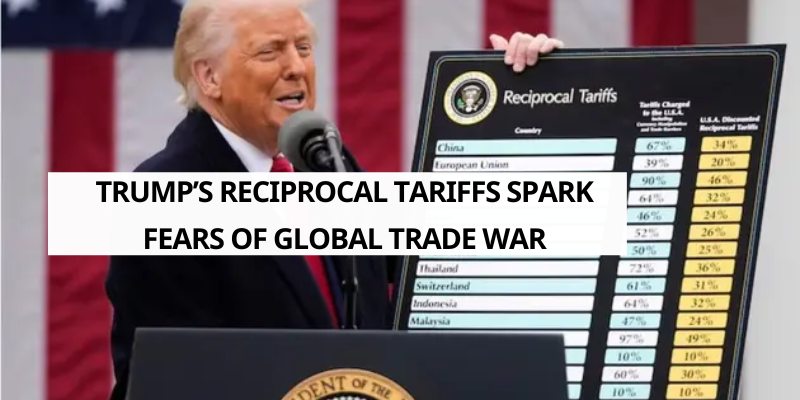Markets Tumble as Trump’s Tariff Gambit Threatens Economic Stability
April 8, 2025 – Global financial markets are in disarray following U.S. President Donald Trump’s bold imposition of reciprocal tariffs, a move that critics fear could trigger a full-blown trade war. Unveiled on April 2, the policy slaps a 10% tariff on most imports, with punitive rates as high as 46% levied against nations like Vietnam, prompting a fierce backlash from trading partners and a brutal sell-off in equities worldwide.
The tariff plan, justified by Trump as a means to “level the playing field” and protect American industries, has instead unleashed chaos. On Wall Street, the Dow and Nasdaq recorded their darkest sessions since the 2020 pandemic plunge, erasing trillions in market value. Across the Pacific, Vietnam’s stock market cratered, with the VN-Index diving 12.5% in a historic rout, as investors fled amid uncertainty over the nation’s export prospects to the U.S., its largest market.
Trump remains unapologetic, doubling down on social media with promises of an “American golden age,” even as he acknowledges potential short-term pain. Yet, the economic toll is already evident. Experts predict higher costs for U.S. consumers—potentially $2,400 more per household annually—while industries reliant on global supply chains, such as automotive and tech, face mounting pressure. Abroad, nations are gearing up to retaliate. China has hinted at counter-tariffs, and the EU is reportedly drafting its own response, raising the specter of a prolonged trade conflict.

Interestingly, the cryptocurrency market has shown resilience amid the storm. While Bitcoin briefly fell below $82,000, it quickly recovered, buoyed by speculation that Trump’s tariff push could undermine the dollar’s dominance and drive interest in decentralized assets. Ethereum and other altcoins followed suit, posting milder losses compared to traditional markets.
As tensions rise, some see a silver lining for Vietnam. A recent call between General Secretary Tô Lâm and Trump hinted at possible negotiations, with Vietnam offering to slash tariffs on U.S. goods to zero if the U.S. reciprocates. Whether this olive branch can avert further damage remains uncertain, but for now, the global economy teeters on the edge of a volatile new chapter.